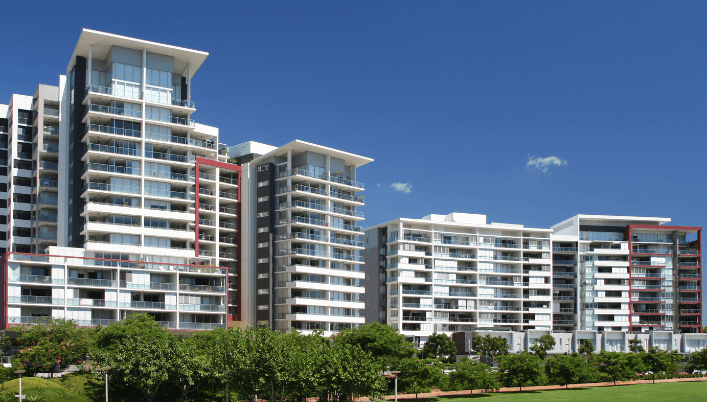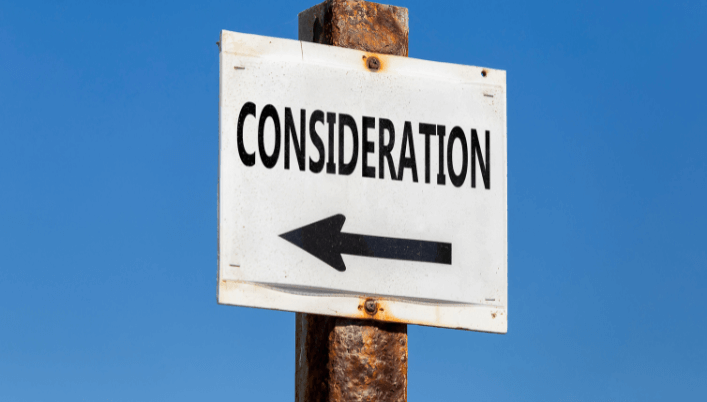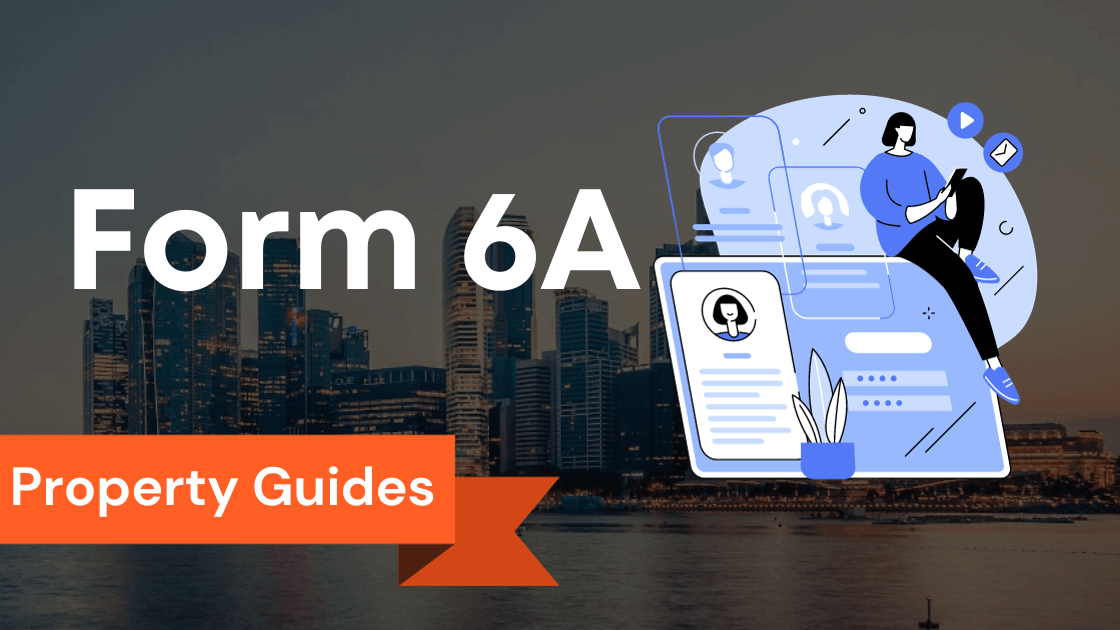Singapore Foreign Ownership of Property: Types of Property

What is the Residential Property Act?
Foreign ownership of property in Singapore is governed by comprehensive regulations that aim to strike a delicate balance between attracting international investment and ensuring the stability and affordability of the housing market for Singaporean citizens.
These regulations restrict the ability of foreigners to purchase and own certain types of residential properties, such as public housing flats and landed properties.
However, foreigners are typically allowed to purchase private condominiums and apartments, subject to approval from the authorities.
The government also imposes additional taxes and fees on foreign buyers to deter excessive speculation and safeguard the interests of the local population.
Overall, Singapore’s approach to foreign ownership of property reflects its commitment to maintaining a sustainable and inclusive housing market.
In Singapore, the Residential Property Act regulates the ownership of residential properties by foreigners.
Under this act, a foreign person is only allowed to purchase property by obtaining approval from the Singapore Land Authority (SLA).
The act defines a foreign person as an unfamiliar national, natural person, foreign citizen, nonresident alien, foreigner, or foreign individual who is not a Singapore citizen, permanent resident, or an entity incorporated in Singapore.
What types of property can foreigners own?
Foreigners are generally restricted when it comes to owning residential properties in Singapore.
However, there are some exceptions.
Foreigners can own certain types of property, including:
- Private apartments and condominiums: Foreigners can own units in private residential developments that the SLA has approved.
- Landed residential properties: Foreigners can own landed properties such as bungalows, semi-detached houses, and terrace houses, but they need to obtain approval from the SLA.
- Non-residential properties: Foreigners can purchase non-residential properties, such as commercial and industrial buildings, without approval from the SLA.
It’s important to note that the ownership of landed residential properties by foreigners is subject to certain restrictions, including a leasehold term not exceeding 7 years with an option for renewal.
Additionally, foreigners can also own strata-titled landed houses, known as strata landed houses.
Benefits of Foreign Ownership of Property in Singapore
Singapore’s real estate market has proved to be an attractive investment option for foreigners.
Some potential benefits of foreign ownership of property in Singapore include:
- Stable property market: Singapore’s property market is known for its stability and strong growth potential.
- Rental income: Foreigners can generate rental income by leasing out their properties in Singapore.
- Capital appreciation: Real estate in Singapore has consistently shown capital appreciation, making it an attractive long-term investment.
- Temporary residency: Foreigners who invest in specific properties may be eligible for the Long-Term Visit Pass or the Permanent Resident status.
Overall, foreign ownership of property in Singapore can offer investors both financial and personal benefits in a country known for its substantial real estate market.
Key Takeaways
- Regulatory Framework: The Residential Property Act governs foreign ownership of residential properties in Singapore, requiring approval from the Singapore Land Authority (SLA).
- Types of Property: Foreigners can own private apartments, condominiums with SLA approval, landed properties with restrictions, and non-residential properties without approval.
- Benefits for Foreigners: Singapore’s stable property market offers rental income, capital appreciation, and potential for residency status to foreign property investors.
- Eligibility Criteria: Foreign individuals or entities must establish a substantial connection to Singapore, while publicly listed companies enjoy property ownership privileges.
- Qualifying Certificate: Foreign business entities can apply for a Qualifying Certificate (QC) to own property, subject to certain conditions.
- Approval Process: Approval for foreign property ownership is case-specific and considers economic contributions, reciprocity, and impact on the local housing market.
- Penalties for Non-Compliance: Owning property without approval can result in fines or imprisonment; exceptions exist for specific conditions.
- Publicly Listed Companies: Publicly listed companies have exemptions and can freely acquire and own property without government approval.
- Qualifying Certificate (QC): Foreign business entities not publicly listed must obtain a QC for specific property types. It’s valid for 5 years and can be renewed.
- Consultation Advised: Foreign investors should consult experts familiar with Singapore’s property regulations to ensure compliance and navigate the market effectively.
Criteria for Approval: Foreign Person

Substantial connection to Singapore
To be eligible for foreign ownership of property in Singapore, individuals or entities must establish a substantial connection to the country.
This includes having a significant presence in Singapore, such as permanent residency, Singaporean citizenship, or being a Singaporean company.
Additionally, individuals with exceptional economic contributions to Singapore or who are assessable for tax in Singapore may also qualify.
Publicly listed companies
Publicly listed companies in Singapore are generally allowed to own property without restrictions.
However, foreign-owned entities must ensure that they are registered as a Singapore company, limited liability partnership, or Singapore society and not solely foreign-owned.
Qualifying certificate
Foreign business entities may apply for a qualifying certificate (QC) to own property in Singapore.
The government grants the QC and requires the foreign entity to commit to developing the property or undertaking an economic activity that brings significant benefits to Singapore.
Companies such as OrangeTee are authorized to assist foreign investors in the acquisition of properties under QC schemes.
These entities play an essential role in facilitating the acquisition process and ensuring compliance with government regulations.
It is important to note that restrictions on foreign ownership aim to maintain stability in the property market and safeguard national interests.
These regulations help ensure that foreign investments contribute significantly to Singapore’s economic growth while maintaining a sustainable property market.
In conclusion, understanding the criteria for approval is crucial for foreign individuals or entities looking to own property in Singapore.
By establishing a substantial connection to Singapore, complying with regulations for publicly listed companies, or obtaining a qualifying certificate, foreign ownership of property can be achieved within the confines of Singaporean law.
Approval Under the Residential Property Act: Qualifying Certificate

When approval is required
Foreign investors who wish to purchase a landed property in Singapore are required to seek approval under the Residential Property Act.
This act stipulates that non-citizens and non-permanent residents must obtain permission before acquiring a property.
The main objective behind this regulation is to manage and control foreign ownership of land in Singapore.
How to apply for approval
To obtain approval, foreign persons need to submit an application to the government.
The application should include relevant information about the buyer and the property.
It is important to note that approval is assessed on a case-by-case basis, and the government considers factors such as the economic benefit and the impact on the local housing market.
Factors considered in the approval process
When evaluating applications, the government takes various factors into consideration.
These factors include the economic contribution the foreign investor brings to Singapore, the interchange of property ownership in the investor’s home country, and the investor’s affiliation with any foreign government or entity.
The government also looks at the overall impact of foreign transactions on the local housing market.
They aim to ensure that foreign investments do not excessively inflate property prices and that there is a balanced market for locals as well.
Foreign investors need to understand and comply with these approval requirements to avoid any legal issues concerning the ownership of land in Singapore.
By following the appropriate procedures, foreign investors can navigate the residential property market and make informed decisions about their investments.
Foreign Ownership Without Approval: Property Ownership

Penalties for owning property without approval
In Singapore, there are strict regulations surrounding foreign ownership of property.
If a foreign individual or entity purchases or owns property without prior approval, they may be subject to penalties.
These penalties can range from fines to imprisonment, depending on the severity of the offense 2022.
Exceptions to the approval requirement
While foreign ownership of property generally requires approval from the government, there are some exceptions to this requirement.
One such exception is for foreign acquisition of landed residential properties.
Foreigners are allowed to purchase such properties without approval under certain conditions, such as being a permanent resident or a Singapore company.
Another exception is for foreign individuals or entities that make an exceptional economic contribution to Singapore.
If they meet certain criteria, they may be approved to own residential properties without prior consent.
It’s important to note that regardless of these exceptions, foreign buyers are still subject to additional taxes.
The Additional Buyer’s Stamp Duty (ABSD) and Buyer’s Stamp Duty (BSD) apply to all property purchases in Singapore, including those made by foreigners.
In conclusion, while foreign ownership of property in Singapore is regulated, certain exceptions and conditions exist.
Foreign buyers must adhere to these regulations and obtain the necessary approvals to avoid penalties.
Additionally, foreign buyers should be aware of the additional taxes they may be required to pay when purchasing property in Singapore.
Other Considerations

Publicly Listed Companies
In Singapore, publicly listed companies have certain privileges when it comes to foreign ownership of property.
These companies, whether they are Singapore companies, limited liability partnerships, or Singapore societies, are exempt from certain restrictions that apply to foreign-owned entities.
They are allowed to freely acquire and own property without seeking government approval.
Qualifying Certificate
Foreign business entities that are not publicly listed companies must obtain a Qualifying Certificate (QC) from the government before they can purchase certain types of property in Singapore.
The QC serves as proof that the purchase is in line with the government’s foreign ownership restrictions.
It is typically valid for 5 years and can be renewed upon meeting certain conditions. Landed Residential Property is required to seek factors such as your employment income assessable for tax.
Without Approval
Foreign-owned land or properties that are not covered by the exemptions mentioned above must seek approval from the government before any transactions can take place.
The government carefully evaluates each case to ensure that the purchase aligns with its foreign ownership policies.
It is important to note that without approval, any transactions involving foreign-owned land or properties would be considered illegal.
Foreign investors should consult with professionals, such as real estate agents or lawyers specializing in foreign ownership regulations, to navigate the complexities of the Singapore property market.
These experts can provide insights and guidance on the necessary steps to take to ensure compliance with the relevant regulations.
Conclusion
Foreign ownership of property in Singapore has been a topic of discussion and debate for many years.
The government has implemented various regulations and measures to ensure that the local property market remains stable and affordable for Singaporeans.
While foreigners are allowed to purchase property in Singapore, certain restrictions and considerations need to be taken into account.
The Planning Act states that foreigners may only own certain types of properties, such as condominiums or apartments, in designated areas.
For landed residential properties, foreigners are required to seek approval from the Land Dealings Approval Unit.
Recent news has shown that the demand from foreign buyers for Singapore properties has been on the rise.
The market value of the property and the transactions in Singapore have seen an upward trend since 2017.
Singapore has become an attractive investment destination for foreigners due to its strong economy, political stability, and quality of life.
However, it is essential for foreigners looking to purchase property in Singapore to consider factors such as their employment status and income assessable for tax.
The Urban Redevelopment Authority has also highlighted the need to preserve the character of conservation shophouses, as well as the collective sale of properties.
In a parliamentary question, Member of Parliament Lee said that the government will continue to monitor the property market closely to ensure that it remains stable and accessible to Singaporeans.
The Housing and Development Board plays a crucial role in providing affordable housing options for Singaporeans, and foreigners are not eligible to purchase these properties.
In conclusion, while foreign ownership of property in Singapore is allowed, some regulations and considerations need to be taken into account.
Foreigners looking to invest in Singapore properties should be aware of the restrictions on landed residential properties, as well as the approval process for certain types of properties.
The local market continues to be strong, and Singapore remains an attractive destination for foreign property investment.
Frequently Asked Questions
What is foreign ownership of property?
Foreign ownership of property refers to the purchase and ownership of property in a country by individuals or entities who are not citizens or residents of that country.
Who is considered a foreign person in terms of property ownership in Singapore?
In Singapore, a foreign person is an individual who is not a Singaporean citizen, permanent resident, or an entity that is not registered or incorporated in Singapore.
What is a qualifying certificate?
A qualifying certificate is a requirement imposed on foreign persons or entities who purchase residential land in Singapore.
It is issued by the Land Dealings Approval Unit (LDAU) and serves as evidence that the buyer has the intention to develop the property.
Do foreigners need to seek approval to purchase a landed residential property in Singapore?
Yes, foreign persons or entities who wish to purchase a landed residential property in Singapore are required to seek approval from the Singapore Land Authority (SLA).
This is in accordance with the Residential Property Act.
Can foreigners purchase HDB flats in Singapore?
No, HDB flats are public housing units in Singapore that are meant for Singaporeans.
Foreigners are not eligible to purchase HDB flats.
Are there any restrictions on foreign ownership of private housing in Singapore?
Foreign persons are generally allowed to purchase private housing in Singapore, subject to certain restrictions and regulations imposed by the government.
What is meant by substantial connection to Singapore in relation to property ownership?
Substantial connection to Singapore refers to the requirement for foreign persons to have a strong tie or link to Singapore in order to be eligible for property ownership.
This includes factors such as having permanent residency, employment in Singapore, or being a Singapore Limited Liability Partnership.
Are there any restrictions on foreigners buying property in publicly listed companies in Singapore?
Foreign persons are generally allowed to purchase shares in publicly listed companies in Singapore, which may include ownership of the property held by the company.
Are there any limits on the number of residential properties a foreign person can own in Singapore?
Yes, foreign persons are restricted to owning only one residential property in Singapore, which can be either a private apartment or an executive condominium.
What is the impact of the COVID-19 pandemic on the local property market and foreign ownership?
The COVID-19 pandemic has had a significant impact on the local property market in Singapore.
Foreign ownership may have been affected due to travel restrictions, economic uncertainties, and changes in investment priorities.












